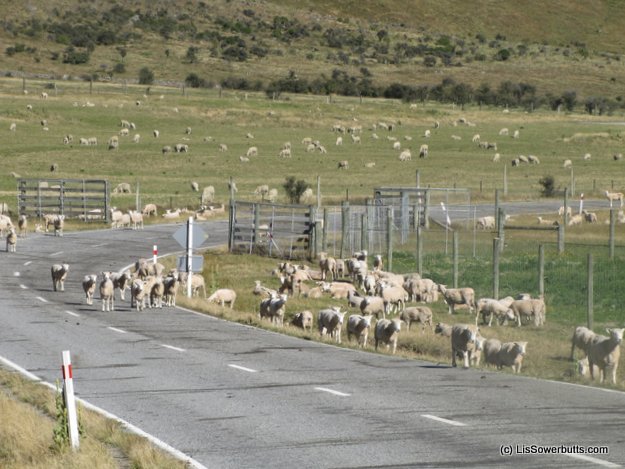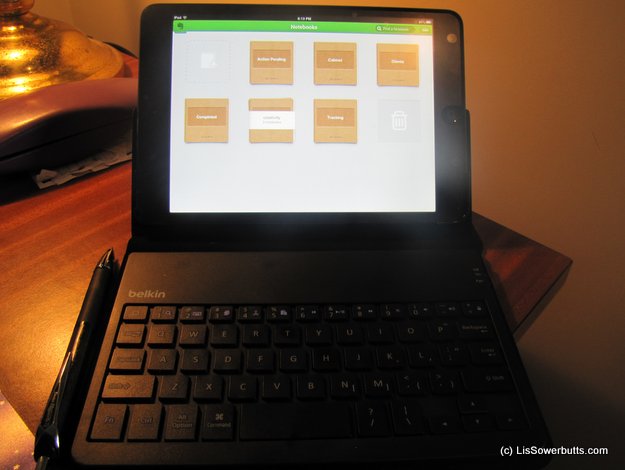So why the hell should you care? You’re a writer, an author or a freelancer, and the question is – where’s your Google Plus profile. The answer is usually like:
I have too many effing social media profiles already!
Which misses the point. Entirely. But let me backup –
What Is Google authorship?
This:

The little picture in some search results – I’m sure you’ve noticed. Google rolled it out in 2011, although the relevant patent was applied for as far back as 2005. I think of authorship as a digital byline combined with an ID check.
Does the picture matter? Somewhat. Testing, and common sense suggest that readers presented with a screen of Google results are more likely to click the results with head shots next to them, or as the SEO geeks would say:
authorship images in the SERPS enhance click-through rates.
But it’s a lot bigger than that. Authorship is potentially the biggest thing to hit the SEO game since Google invented page rank – back in the dark ages. And even if you are not a SEO – if you are writing for a living either your work or as a pen for hire, you’d be wise to pay attention.
The Anonymous Web Is A Nightmare For Google
Back in the old days, I used to manipulate the search results. I would research topics which pays well on Adsense e.g. payday loans or sells a product eg. GPS for travellers. I’d buy a lot of cheap articles and create a website. It worked. I didn’t make as much money as some, but I made a living. I wasn’t a spammer, or a plagiarist, the content I had written by humans, was unique and made sense (mostly). It just wasn’t very, hmmm compelling. That’s what you get for 1c/word. The thing is Google is an algorithm, and for a computer it’s extremely difficult to tell the difference between this:
Payday loans are useful if you need money before payday. In order to find a payday loan you should search on the Google and find a website that offers payday loans. Then you will need to enter in your name and address into the payday loans site. You will need to ensure that your name and address match your social security and driver’s license details. Once the lender has scrutinized your application they will avail you with the requested sum. The funds will help you bridge the gap until payday comes around again.
and this
Payday loan providers are one step removed from loan sharks. Traditionally run out of a shop-front in a low-rent neighbourhood, payday loans are now available online, from the privacy of your own home. One thing hasn’t changed though, this type of lending is risky; so you, the borrower, are going to pay a very high interest rate. Payday loans have their place, but use them sparingly and consider other ways to bridge the gap between your income and expenses.
You and I know the difference between those two paragraphs, but it’s very hard to explain that difference to a computer. Enter the social web. Instead of designing a very, very clever computer algorithm – you just put it to the public vote – more tweets, more Facebook mentions, more comments, the content must be more “compelling”.
No problem for us SEOs though, $5 on fiverr.com will buy you as many retweets, Facebook pals, and adoring fans leaving insightful comments, than you could ever need.
Google needed access to the data on the social sharing sites to weed out the $5 gigs and real people sharing content. Google doesn’t own Facebook or Twitter. They needed their own social network, which they controlled.
Enter Google Plus. Now Google Plus has taken a while to take off – but it’s number of users is now second only to Facebook. That’s somewhat inflated because everyone who needs a Google account to use gmail or gdocs, gets a profile. But still it’s impressive. Plus it’s a lot harder to game, it’s harder to buy google plus fake IDs and fake followers.
Now Google has taken it one step further.
Google Author Rank – Benefits for Authors and Freelancers
Then they invented author rank – and everything changed. Author rank – is basically a byline – a link back to your Google plus profile. You can’t set up your profile without providing
- your name
- your photo
- linking your name to your sites
So now if you if you search for payday loans – you could theoretically – find my compelling, interesting article on the topic – with my smiling visage next to it. (Actually, you won’t. There are some topics you can’t pay me enough to write on, payday loans are one of them.)
However the important thing is that Google now has a real name (or under limited circumstances a pseudonym), associated with the article. They can track my articles, and they can analyse:
- how many people have me in circles on Google plus (i.e. they follow me);
- the number of times my articles are shared on Google plus
- the authority of the site where my articles appear.
It seems likely that they can now give me a score. Ultimately, and remember this is early days so far,
the better my author rank, the more likely my article will rank even if it’s published on a website I’ve never written for before.
Ranking an article based, in part, on it’s authorship rather than it’s publisher is HUGE.
So for a freelance writer, or any author promoting their own work, author rank becomes important.
As a freelancer, you can ask for a higher price for your work if the client wants you to use your Google authorship.
For an author, it’s a no-brainer, you want Google to relate all your web-writing to your profile. I’ve added my Amazon author pages to my Google plus profile as well, can’t hurt.
Plus for those who still worry about plagiarism, it’s likely a big step in making sure that sites that copy your work illegally, do not outrank you in the search results.
The Dark Side of Author Rank
Google loves real names. There are issues around that. The use of pen-names and pseudonyms has a long and legitimate history. Many people have very good reasons for remaining anonymous on-line, as they obscure their online life from employers to crazy ex-spouses. If you write erotica on the side and write for a parenting website, you may want to use a different pen-name! Google authorship makes this difficult.
It’s a two-way street. If your authorship is associated with a well-trusted website, then it’s probably a good thing for your author rank. However if the site is not trusted by Google, then it could work the other way, as well. Google has a long track record of destroying the innocent while pursuing the guilty. And they don’t do appeals. I noted on my Google plus profile that I can update sites to “not current’ when I no longer contribute to them. Whether that will help you if a good site goes bad, only Google knows.
Branding is almost impossible. I’d like to separate Lis the writer from Lis the on-line entrepreneur and Lis the whatever weird topic I’m freelancing on this week. Google plus doesn’t work like that. However, it also doesn’t work like Facebook. You don’t share everything on Google Plus with everyone. I can chose to share only articles about writing to the writing circles I have, and so on.
Google Authorship is new – and most freelancers don’t yet understand it, hence this article. Many clients will still want simply a ghost article to which they will apply their own name (and event their Google authorship). That’s all good. But increasingly freelancers are being asked to use their own profiles. I know I got one job at least partly because I had a reasonable following on Google Plus.
Before you end up in that situation think about your strategy.
More reading
How to setup Google Authorship on your website
Oh yeah – and circle me on Google Plus or join my self-publishing community over there!
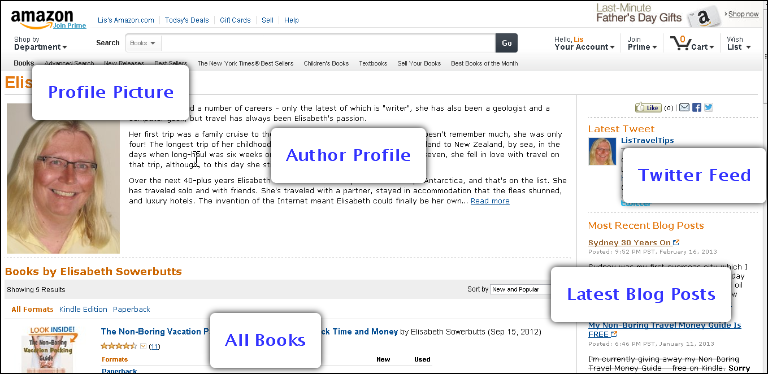
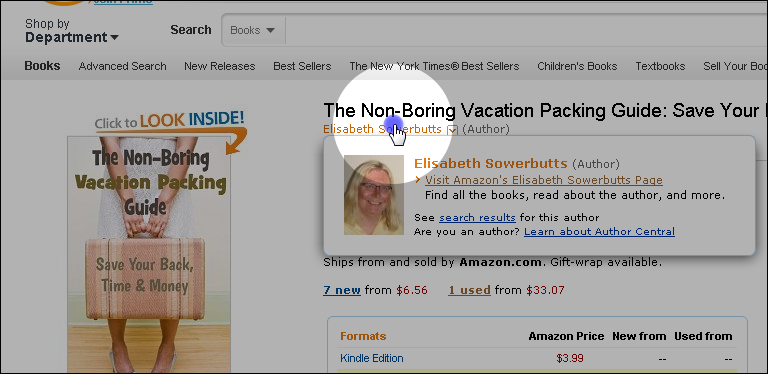
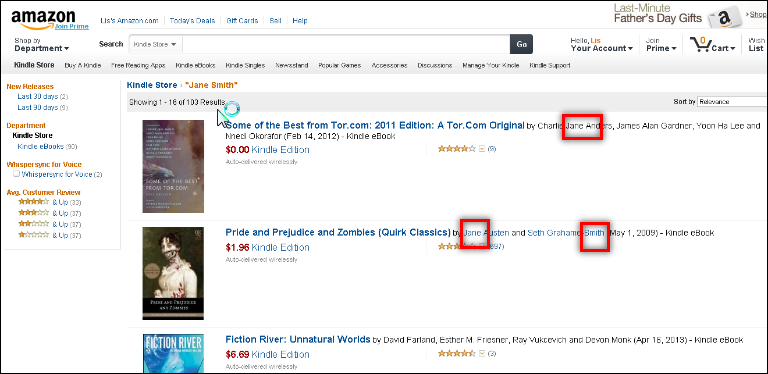
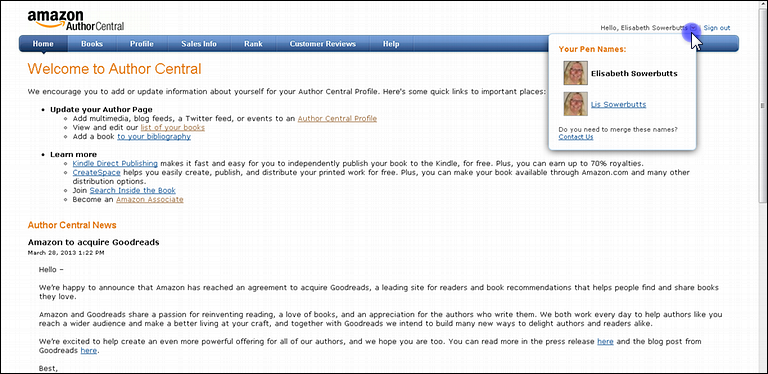
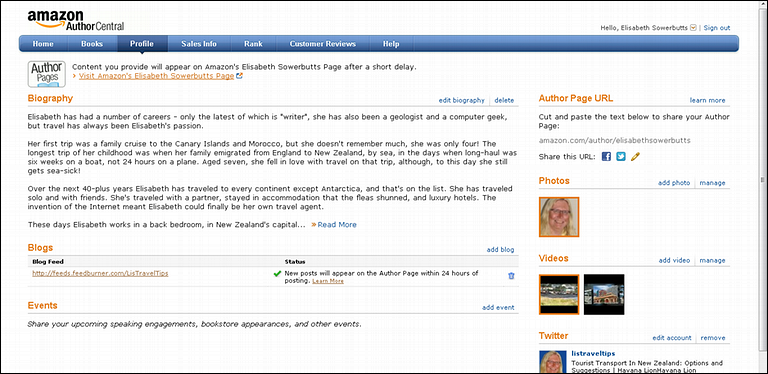
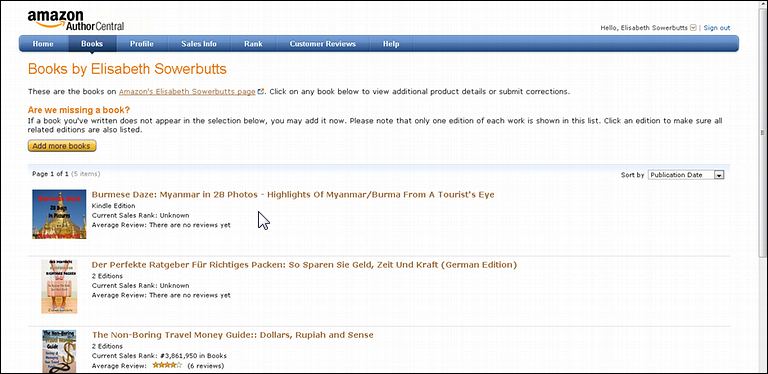 5) For each book you can amend the listing on amazon.com by making changing to the listing details in Amazon Central. Note that you may have multiple editions of the books e.g. Kindle and paperback and you can change each independently.
5) For each book you can amend the listing on amazon.com by making changing to the listing details in Amazon Central. Note that you may have multiple editions of the books e.g. Kindle and paperback and you can change each independently. 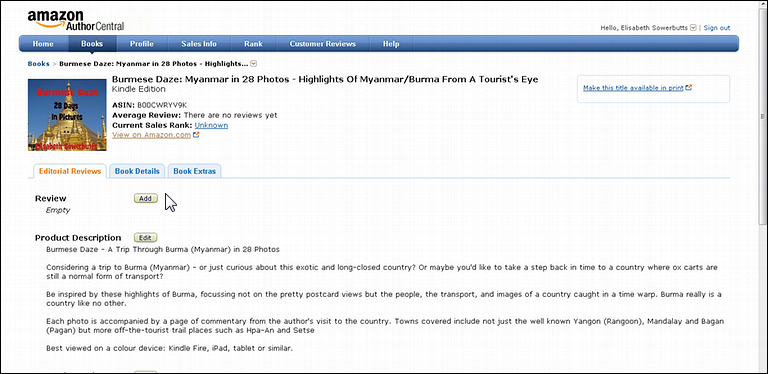
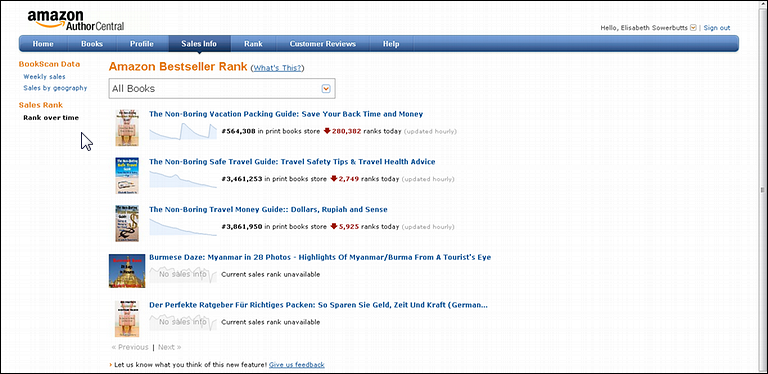
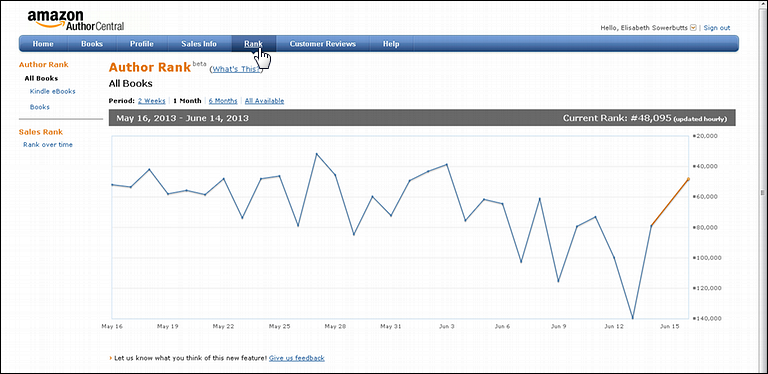
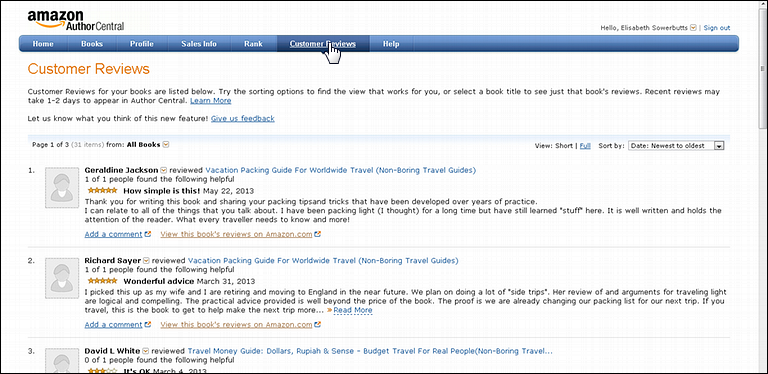
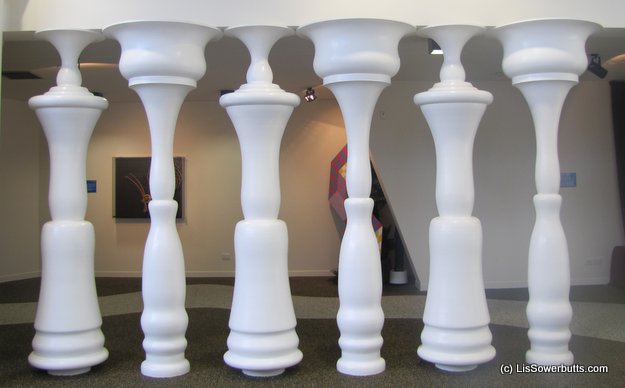
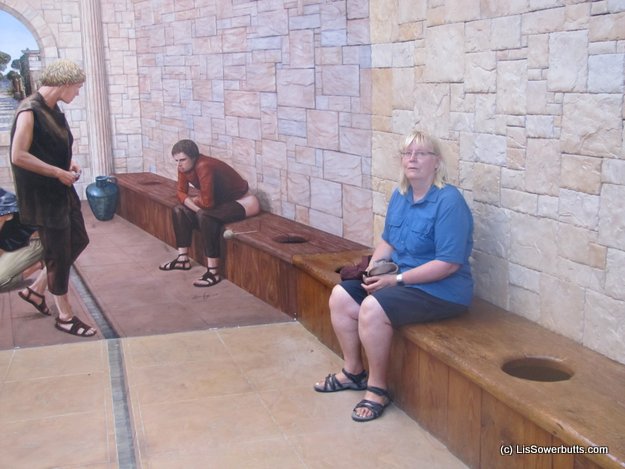

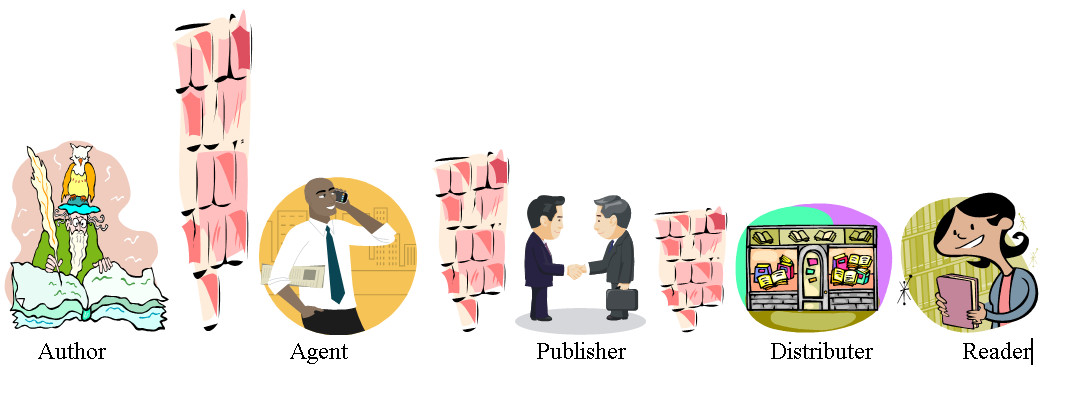
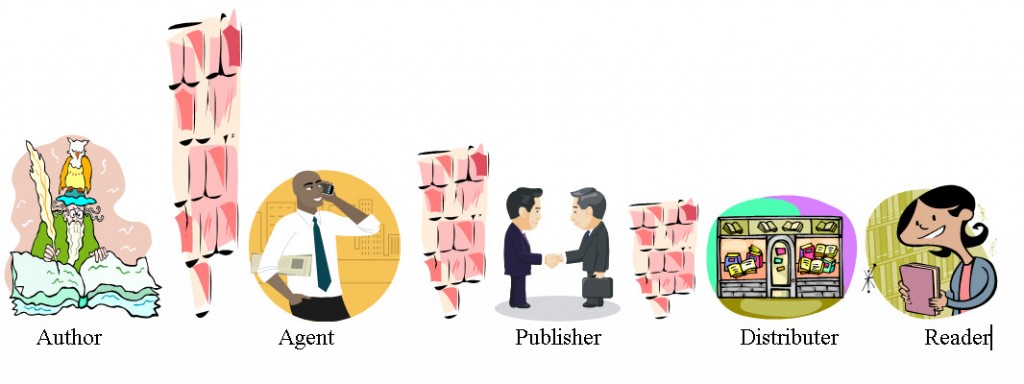
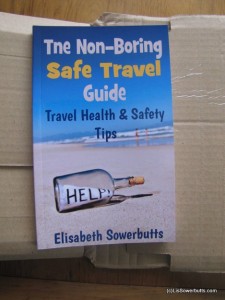 I was caught out when I received my first print books. They arrived in a box from America and I sat looking at them, stroking them ,with a stupid smile on my face. It was pathetic – fortunately there were no witnesses! They were so cute! They were mine! Yes I’ve published thousands of blog posts and articles all over the web for years – but paper was different!
I was caught out when I received my first print books. They arrived in a box from America and I sat looking at them, stroking them ,with a stupid smile on my face. It was pathetic – fortunately there were no witnesses! They were so cute! They were mine! Yes I’ve published thousands of blog posts and articles all over the web for years – but paper was different! 